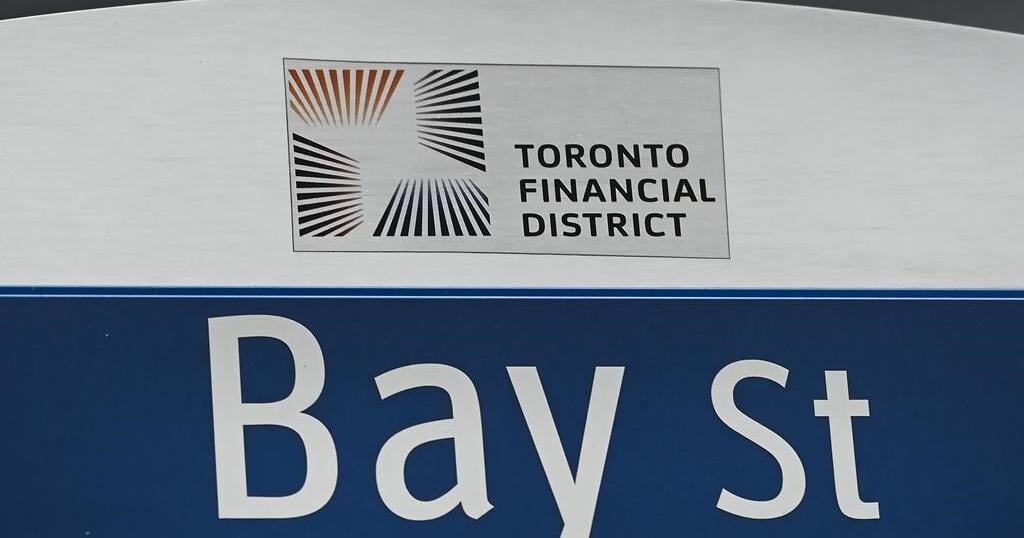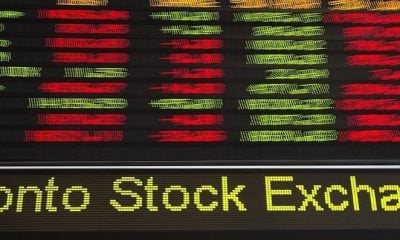Economy
World economy at critical juncture in inflation fight, central-bank body warns
LONDON, June 25 (Reuters) – The world’s central bank umbrella body, the Bank for International Settlements (BIS), called on Sunday for more interest rate hikes, warning the world economy was now at a crucial point as countries struggle to rein in inflation.
Despite the relentless rise in rates over the last 18 months, inflation in many top economies remains stubbornly high, while the jump in borrowing costs triggered the most serious banking collapses since the financial crisis 15 years ago.
“The global economy is at a critical juncture. Stern challenges must be addressed,” Agustin Carstens, BIS general manager, said in the organisation’s annual report published on Sunday.
“The time to obsessively pursue short term growth is past. Monetary policy must now restore price stability. Fiscal policy must consolidate.”
Claudio Borio, the head of BIS’s monetary and economics unit, added there was a risk an “inflationary psychology” was now setting in, although the bigger-than-expected rate hikes in Britain and Norway last week showed central banks were pushing “to get the job done” in terms of tackling the problem.
Their challenges are unique by post-World War Two standards though. It is the first time that, across much of the world, a surge in inflation has co-existed with widespread financial vulnerabilities.
The longer inflation remains elevated, the stronger and prolonged the required policy tightening, the BIS report said, warning that the possibility of further problems in the banking sector was now “material”.
If interest rates get to mid-1990s levels the overall debt service burden for top economies would, all else being equal, be the highest in history, Borio said.
“I think central banks will get inflation under control. That is their job – to restore price stability,” he told Reuters. “The question is what will the cost be.”

BANKING CRISES
The Swiss-based BIS held its annual meeting in recent days, where top central bankers discussed the turbulent last few months.
March and April saw a failure of a number of U.S. regional banks including Silicon Valley Bank and then the emergency rescue of Credit Suisse in the BIS’s own backyard.
Historically, about 15% of rate hike cycles trigger severe stress in the banking system, the BIS report showed, although the frequency rises considerably if interest rates are going up, inflation is surging or house prices have been rising sharply.
It can even be as high as 40% if the private debt-to-GDP ratio is in the top quartile of the historical distribution at the time of the first rate hike.
“Very high debt levels, a remarkable global inflation surge, and the strong pandemic-era increase in house prices check all these boxes,” the BIS said.
It estimated too that the cost of supporting aging populations will grow by approximately 4% and 5% of GDP in advanced (AEs) and emerging market economies (EMEs) respectively over the next 20 years.
Absent belt-tightening by governments, that would push debt above 200% and 150% of GDP by 2050 in AEs and EMEs and could be even higher if economic growth rates wane.
Part of the report published already last week also laid out a “game changing” blueprint for an evolved financial system where central bank digital currencies and tokenised banking assets speed up and smarten up transactions and global trade.
Commenting further on the economic picture, Carstens, former head of Mexico’s central bank, said the emphasis was now on policymakers to act.
“Unrealistic expectations that have emerged since the Great Financial Crisis and COVID-19 pandemic about the degree and persistence of monetary and fiscal support need to be corrected,” he said.
The BIS thinks an economic “soft, or soft-ish” landing – where rates rise without triggering recessions or major banking crashes – is still possible, but accepts it is a difficult situation.
Analysts at Bank of America have calculated there have been a whopping 470 interest rate rises globally over the past 2 years compared with 1,202 cuts since the financial crash.
The U.S. Federal Reserve has lifted its rates 500 basis points from near zero, the European Central Bank has hiked the euro zone’s by 400 bps and many developing world economies have done far more.
The question remains what more will be needed, especially with signs that companies are taking the opportunity to boost profits and workers are now demanding higher wages to prevent a further erosion of their living standards.
“The easy gains have now been reaped and the last mile is going to be more difficult,” Borio said, referring to challenges central bankers now face reeling inflation back to safe levels. “I wouldn’t be surprised if there were more surprises”.
(This story has been corrected to change the combined rise ECB rate hikes to 400 basis points from 375 basis points in paragraph 22)

Economy
S&P/TSX composite gains almost 100 points, U.S. stock markets also higher

TORONTO – Strength in the base metal and technology sectors helped Canada’s main stock index gain almost 100 points on Friday, while U.S. stock markets also climbed higher.
The S&P/TSX composite index closed up 93.51 points at 23,568.65.
In New York, the Dow Jones industrial average was up 297.01 points at 41,393.78. The S&P 500 index was up 30.26 points at 5,626.02, while the Nasdaq composite was up 114.30 points at 17,683.98.
The Canadian dollar traded for 73.61 cents US compared with 73.58 cents US on Thursday.
The October crude oil contract was down 32 cents at US$68.65 per barrel and the October natural gas contract was down five cents at US$2.31 per mmBTU.
The December gold contract was up US$30.10 at US$2,610.70 an ounce and the December copper contract was up four cents US$4.24 a pound.
This report by The Canadian Press was first published Sept. 13, 2024.
Companies in this story: (TSX:GSPTSE, TSX:CADUSD)
The Canadian Press. All rights reserved.
Economy
Statistics Canada reports wholesale sales higher in July

OTTAWA – Statistics Canada says wholesale sales, excluding petroleum, petroleum products, and other hydrocarbons and excluding oilseed and grain, rose 0.4 per cent to $82.7 billion in July.
The increase came as sales in the miscellaneous subsector gained three per cent to reach $10.5 billion in July, helped by strength in the agriculture supplies industry group, which rose 9.2 per cent.
The food, beverage and tobacco subsector added 1.7 per cent to total $15 billion in July.
The personal and household goods subsector fell 2.5 per cent to $12.1 billion.
In volume terms, overall wholesale sales rose 0.5 per cent in July.
Statistics Canada started including oilseed and grain as well as the petroleum and petroleum products subsector as part of wholesale trade last year, but is excluding the data from monthly analysis until there is enough historical data.
This report by The Canadian Press was first published Sept. 13, 2024.
The Canadian Press. All rights reserved.
Economy
S&P/TSX composite up more than 150 points, U.S. stock markets mixed

TORONTO – Canada’s main stock index was up more than 150 points in late-morning trading, helped by strength in the base metal and energy sectors, while U.S. stock markets were mixed.
The S&P/TSX composite index was up 172.18 points at 23,383.35.
In New York, the Dow Jones industrial average was down 34.99 points at 40,826.72. The S&P 500 index was up 10.56 points at 5,564.69, while the Nasdaq composite was up 74.84 points at 17,470.37.
The Canadian dollar traded for 73.55 cents US compared with 73.59 cents US on Wednesday.
The October crude oil contract was up $2.00 at US$69.31 per barrel and the October natural gas contract was up five cents at US$2.32 per mmBTU.
The December gold contract was up US$40.00 at US$2,582.40 an ounce and the December copper contract was up six cents at US$4.20 a pound.
This report by The Canadian Press was first published Sept. 12, 2024.
Companies in this story: (TSX:GSPTSE, TSX:CADUSD)
The Canadian Press. All rights reserved.
-

 Sports18 hours ago
Sports18 hours agoKirk’s walk-off single in 11th inning lifts Blue Jays past Cardinals 4-3
-

 Sports18 hours ago
Sports18 hours agoCanada’s Marina Stakusic falls in Guadalajara Open quarterfinals
-

 News23 hours ago
News23 hours agoKamloops, B.C., man charged with murder in the death of his mother: RCMP
-

 Sports19 hours ago
Sports19 hours agoStampeders return to Maier at QB eyeing chance to get on track against Alouettes
-

 News22 hours ago
News22 hours agoKingston mayor’s call to close care hub after fatal assault ‘misguided’: legal clinic
-

 News23 hours ago
News23 hours agoS&P/TSX gains almost 100 points, U.S. markets also higher ahead of rate decision
-

 Sports22 hours ago
Sports22 hours agoWhitehead becomes 1st CHL player to verbally commit to playing NCAA hockey
-

 News19 hours ago
News19 hours agoMetro Vancouver’s HandyDART strike continues after talks break with no deal





















